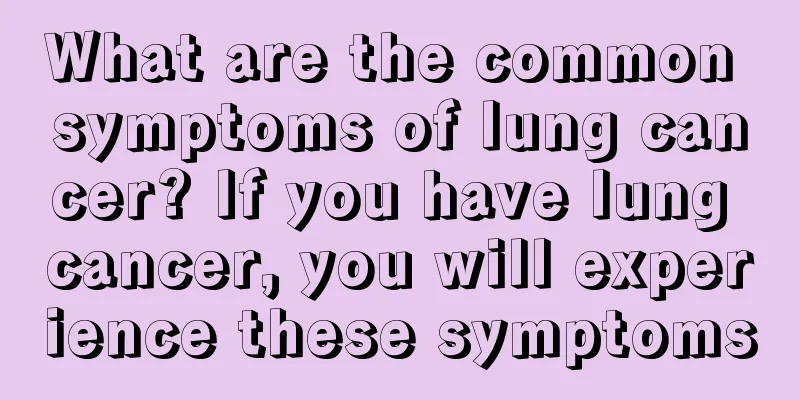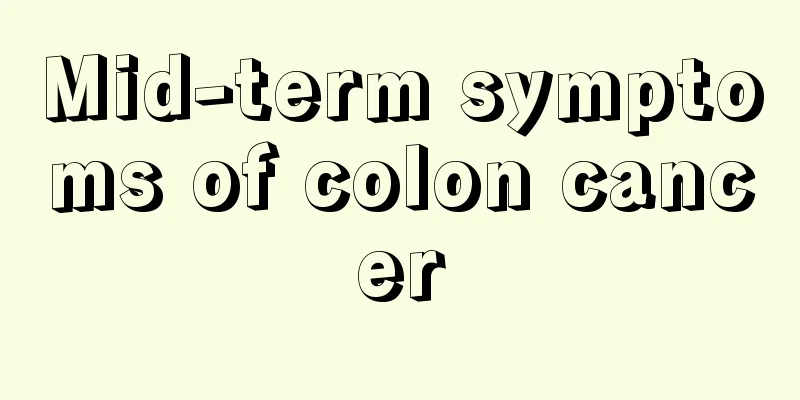What is the effective treatment for infectious diarrhea?

|
Infectious diarrhea is a problem that needs attention, because frequent diarrhea or vomiting may sometimes cause severe dehydration and cause great harm to the patient. Therefore, it is necessary to pay attention to timely rehydration treatment, pay attention to diet, and choose more easily digestible foods rich in various trace elements. 1. Diet therapy Patients with acute infectious diarrhea generally do not need to fast (except for severe vomiting). They should resume eating 4 hours after starting oral rehydration therapy or intravenous rehydration, eat small meals frequently (6 meals a day are recommended), eat less greasy, easily digestible foods rich in trace elements and vitamins, and increase calorie intake as much as possible. Avoid canned fruit juices, etc., as this may aggravate diarrhea. 2. Fluid therapy Adult patients with acute infectious diarrhea should be encouraged to receive oral rehydration salts as much as possible, but intravenous rehydration therapy should be used in the following situations: (1) Frequent vomiting and inability to eat or drink; (2) Severe systemic conditions such as high fever, especially those accompanied by impaired consciousness; (3) Severe dehydration, circulatory failure accompanied by severe electrolyte imbalance and acid-base imbalance; (4) Other situations that are not suitable for oral rehydration therapy. Fluid rehydration for patients suffering from shock caused by dehydration should follow the principle of "fast first, slow later, salt first, sugar later, crystals first, colloids later, and potassium supplementation when urine is seen". 3. Antidiarrheal treatment (1) Intestinal mucosal protective agents and adsorbents such as montmorillonite, pectin and activated carbon have the function of absorbing intestinal toxins and protecting the intestinal mucosa. (2) Probiotics are not only beneficial to human health, but can also be used to treat diarrhea, effectively reduce the occurrence of AAD, and significantly reduce Clostridium difficile infection. Avoid using probiotics and antibiotics at the same time as much as possible. 4. Inhibit intestinal secretion (1) Bismuth subsalicylate inhibits intestinal secretion and relieves symptoms such as diarrhea, nausea, and abdominal pain in patients with diarrhea. (2) Enkephalinase inhibitors, which reduce excessive secretion of intestinal water and electrolytes. 5. Intestinal motility inhibitors Loperamide, phenoxylate. Not recommended for infectious diarrhea. |
<<: What are the symptoms of pulmonary fibrosis?
>>: What is the reason for frequent diarrhea and unformed stools?
Recommend
How to prevent lung cancer? Here are four points
Lung cancer is a very serious disease, and if it ...
What are the advanced symptoms of lung cancer brain metastasis? 7 advanced symptoms of lung cancer brain metastasis
Lung cancer is a common and very harmful disease....
Tips for those who can't sleep during the night shift
When everyone grows to a certain age, they need t...
Will not sleeping for one night affect the exam?
A night of sleep deprivation will generally affec...
Symptoms of frozen shoulder and rotator cuff injury
Both frozen shoulder and rotator cuff injury will...
Do you need to boil ginger for foot soak
As a condiment, ginger is not only commonly found...
Makeup Essentials for Beginners
Makeup is a very important activity in life, espe...
Can I eat watermelon during the confinement period?
The meaning of confinement is that the mother sho...
What are the dangers of chronic lung cancer
The incidence of lung cancer has been increasing ...
Strong foreign body sensation in throat
Having foreign objects in the throat is a very co...
What are the dietary taboos after gastrectomy for gastric cancer? Pay attention to these three points
You need to pay more attention to your diet after...
What to eat to promote blood circulation
Blood viscosity leads to poor blood circulation. ...
Nasolabial fold malignant tumor, TCM treatment method
Malignant tumor of the nasolabial fold is a commo...
Low-tar cigarettes do not reduce the risk of lung cancer
The British Medical Journal reported that smokers...
How to take care of your hair after it softens? Pay attention to these 5 points
After softening the hair, it will become very sen...









